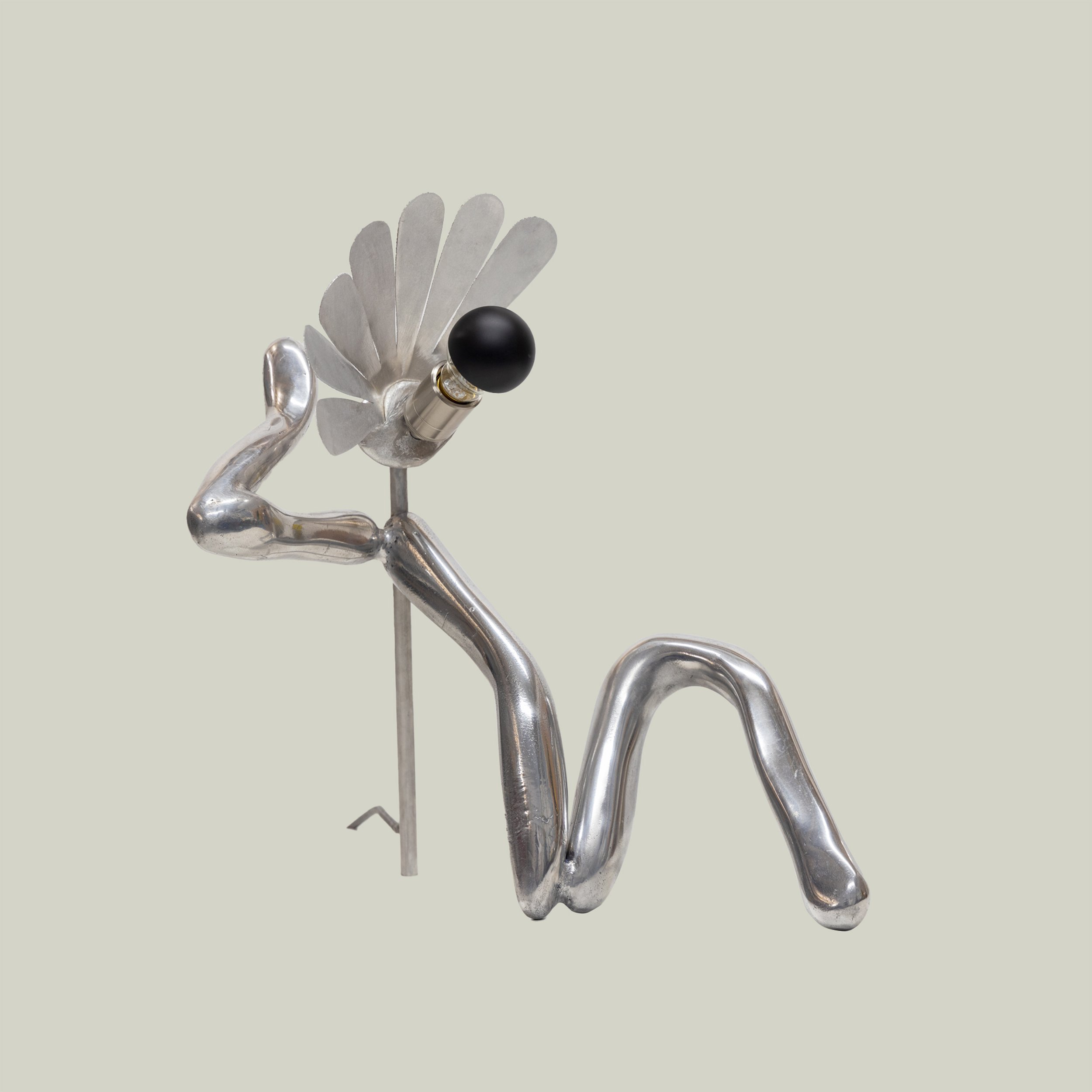BY JAMPS
By Jamps began their practice in 2022, driven by the realisation that the laser cutter could be an invaluable workshop tool and that scrap material, particularly aluminium, could be repurposed freely to create their work. Aluminium quickly became their material of choice due to its versatility, offering an almost infinite range of possibilities. This abundance of material, paired with its creative potential, allowed Jamps to focus on designing through making, embracing a hands-on approach to experimentation and pushing the boundaries of what aluminium could do.
By Jamps’ practice is deeply influenced by their background in speculative design, shaped during their time studying together at the Royal College of Art’s Design Interactions programme. Each piece carries a story, often reflecting Tom’s fascination with science fiction or Martha’s inspiration drawn from Medieval illustrations. Both are equally influenced by a shared love of nature, which subtly informs their work. Central to Jamps’ ethos is their commitment to craft—all their work is made entirely by hand, a principle that lies at the heart of the practice.
By Jamps’ body of work is deliberately varied, united by their use of aluminium as the primary material. Their design language is nuanced and intentionally free, reflecting their experimental approach. Sustainability plays a key role, with By Jamps prioritising the use of scrap aluminium, a material both abundant and accessible to them. They employ a wide range of techniques to transform the material: Tom has developed a distinctive casting technique that has become a cornerstone of his work, while Martha began by weaving metal as though it were a textile and is now exploring hydroforming. Together, they also anodise, laser cut, weld, and use tools like the English Wheel, constantly seeking to expand their repertoire of techniques.
The ethos behind By Jamps’ practice is to continually expand their workshop capabilities, learn new skills, and explore ideas that inspire them. While the final pieces are important, the process of creation—the experimentation, problem-solving, and skill-building—is just as central to their work, reflecting their belief in the value of designing through making.





